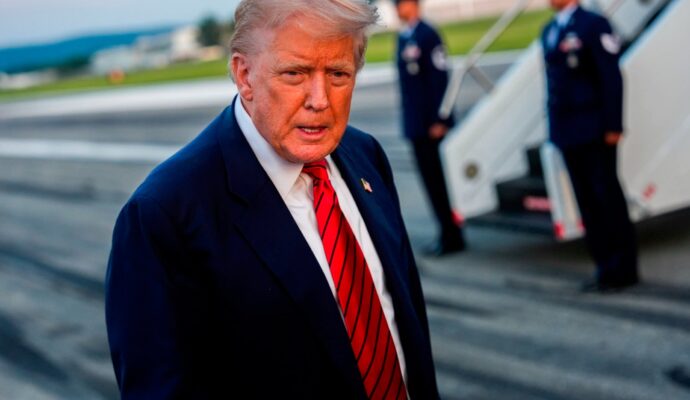
Unlock the White House Watch newsletter for free
Your guide to what Trump’s second term means for Washington, business and the world
The writer is a professor at Harvard University and a former chair of the White House Council of Economic Advisers
Americans who support Donald Trump are celebrating his victories in the trade deals with the EU, Japan, South Korea and others. Meanwhile, many in those economies are angry at what they see as their leaders’ unilateral surrender.
Both of these views reflect the same mistaken mercantilist thinking that motivated the US president to launch his extraordinary tariffs in the first place. The settlements leave us in the second worst of all worlds, but at least avoided the very worst: a full-on global trade war of escalating tariffs on all sides.
“Winners,” “losers” and “concessions” are all misnomers when it comes to trade policy. The US has now raised the average tariff rate from about 3 per cent to about 20 per cent. The result will be that US consumers will benefit less from imports, while American exports will also shrink.
The problem the rest of the world faced was that it was negotiating with a man who either did not understand this or did not care. The issue is that levying tariffs is like a person simultaneously shooting himself and another person in the foot. If the other person responds by shooting both himself and the original person in the foot, that would leave both unable to walk.
The only argument for Europe, Japan or the other economies levying comparable tariffs on the US would have been if it led to a settlement in which the latter dropped its tariffs on them. The best outcome for Europe or Japan would be near-zero average tariffs on both sides, which is about where things were in January. But if the US was going to hurt these economies with tariffs, as Trump has clearly been willing to do, it was wise of them not to compound the harm with more tariffs of their own.
In fact, Canada — which has pursued a different strategy — might suffer more from its retaliation against the US than it does from the American tariffs themselves. Moreover, countries that made deals will benefit from some trade diversion because what matters for exports to the US is not the absolute level of tariffs but how they compare with those faced by other countries.
If countries around the world had made common cause, they may have had sufficient leverage to get the US to back down. Somewhat to my surprise, that never happened. So the economies that accepted deals made the rational choice given the bilateral games they were playing.
But why did the EU, Japan, South Korea, Vietnam and others go even further and make what are widely called “concessions”? These should be thought of not as a price they paid to appease Trump but instead as a benefit they received while appeasing Trump. Consumers in these countries will benefit even more from reduced tariffs on US exports of items like cars, industrial items and agricultural products than American workers will.
Sure, there was an argument that other countries should have continued to harm themselves by imposing tariffs in order to gain leverage for an even better deal in the future. I was not close enough to the negotiation to know, but I am sceptical — and as an economist I can merely offer the observation that the “concessions” were generally in the interests of the countries that made them.
The big exception to all of this is China, which has not agreed to anything and in fact has forced Trump to back down from at least some of his tariffs. The issues raised by China trade are real, including its lack of adherence to global trading rules, the risks of too much reliance on one country and the possibility of future conflict. Unfortunately, China has much more leverage over the US than any other country in the world. America is a nice customer for Chinese businesses, but Chinese rare earths are a must-have for many American companies.
To confront China, the US needs to do two things. First, make domestic investments in research, adopt an open immigration policy and offer support to critical industries. Second, build a global coalition that could have at least a prayer of reversing all of the leverage China currently possesses. Unfortunately, building global coalitions against trade bullies is very hard — and nothing the US has done to countries around the world will end up making it any easier.
So the bottom line is that the US will be poorer because of its tariffs, while Europe, Japan, South Korea and other deal makers will be better off. And China will continue on its current course undeterred by the divisions in the rest of the world. But I suppose it could have been even worse.


